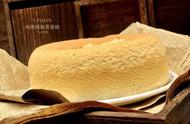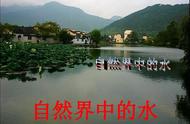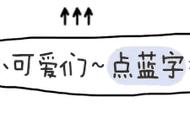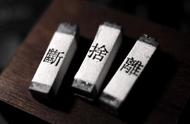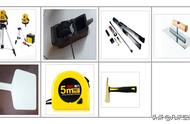定冠词是英语中用来特指某个或某些特定的人或东西的词,其基本形式为 the。
在辅音音素前,the 读为/ðə/,
在元音音素前或在强调时,读为/ðɪ/。
▶ 用以特指某(些)人或某(些)事物
This is the house where Luxun once lived.
这是鲁迅曾经住过的房子。
▶ 特指上文提到过的特定的人或事物
Once there lived a lion in the forest. Every day the lion asked small animals to look for food for him.
从前森林里住着一只狮子。每天这只狮子要小动物们为他寻找食物。
I went to a nearby restaurant. The food there was good, but the service of the restaurant was terrible.
我去了附近一家饭店,那里的饭菜很好,但服务很糟糕。
▶ 特指上文虽未提及,但谈话双方都知道的人或事物
Open the door, please. 请把门打开。
Would you please turn down the TV a little? The baby is sleeping.
请把电视机音量调小点好吗?孩子正在睡觉。
▶ 表示世界上宇宙中独一无二的事物
the sun 太阳 | the moon 月亮 | the earth 地球 |
the sky 天空 | the world 世界 | the sea 海洋 |
▶ 用于表示地名、组织名、海洋、江河、湖泊、山脉、海峡、海湾、沙漠等的专有名词前
the Great Wall 长城 | the West Lake 西湖 |
the Yangtze River 长江 | the Summer Palace 颐和园 |
the Yellow River黄河 | the Sahara 撒哈拉沙漠 |
the Pacific Ocean 太平洋 | the Atlantic Ocean 大西洋 |
the Himalayas 喜马拉雅山 | the Taiwan Straits 台湾海峡 |
the Red Sea 红海 | the Persian Gulf 波斯湾 |
the US 美国 | the UK 英国 |
the WTO 世界贸易组织 | the UN 联合国 |
the Palace Museum 故宫博物院 | the History Museum 历史博物馆 |
▶ 用在表示地点、方位和时间的固定短语中
in the world 在世界上 | in the country 在乡村 |
at the corner 在拐角处 | in the east 在东方 |
from the west 从西方 | on the left 在左边 |
in the beginning 开始 | in the end 最后 |
in the morning 在早晨 | in the middle of 在....中央 |
▶ 用在序数词前、形容词最高级前或比较级所修饰的名词前
January is the first month of the year.
一月份是一年当中的第一个月。
Shanghai is the biggest city in China.
上海是中国最大的城市。
Which story is the more interesting (story) of the two?
这两个故事哪一个更有趣?
▶ 用于 “the 比较级...,the 比较级...”固定用法中,表示越.....越......
The more love we give, the more love we'll receive.
我们付出的爱越多,得到的爱就越多。
The more careful you are, the fewer mistakes you'll make.
你越仔细,出的错就越少。
▶ 用在可数名词单数前表示一类人或事物
The brain is the centre of thought。
大脑是思维的中心。
The pen is mightier than the sword.
笔胜于剑,文胜于武。
The horse is a useful animal.
马是一种有用的动物。
▶ 和某些形容词连用,使形容词名词化,代表一类人或物
the rich 富人 | the wealthy 富人 | the poor 穷人 |
the old 老人 | the aged 老人 | the young 年轻人 |
the sick 病人 | the wounded 伤员 | the brave 勇敢的人 |
the strong 强者 | the weak 弱者 | the good 好人 |
the unknown 未知世界 | the impossible 不可能的事 | the beautiful 美丽的事物 |
▶ 用于play后跟的表示西洋乐器的名词前(中国乐器名词前不与冠词连用)
play the piano 弹钢琴
play the violin 拉小提琴
play the guitar 弹吉他
▶ 用于表示世纪或年代的词前
in the 19th century 在19世纪
in the fifties 在50年代
in the 1980s/1980's 在20世纪80年代
▶ 用于 “动词 sb. 介词 the 身体某一部位” 的句型中
take sb. by the arm 抓住某人的手臂
hit sb. in the face 打某人的脸
The policeman caught the thief by the arm.
警察抓住了小偷的胳膊。
The teacher patted the child on the shoulder and encouraged him to answer.
老师拍拍孩子的肩膀并鼓励他回答。
A stone hit me in the face as I walked by the garden.
我从花园旁经过时一块石头击中了我的脸。
▶ 用于“by the 计量单位名词”结构中
by the pound/ foot/ yard 按磅/英尺/码
by the hour/ day/ week/ year 按小时/日/星期/年
▶ 用于姓氏的复数之前
定冠词有时可用于表示姓氏的复数前,表示全家人或全家中两个或两个以上的人。
None of us here like the Smiths.
我们这里没有人喜欢史密斯一家人。
The Greens were too poor to send their son to school.
格林夫妇太穷,没钱送他们的儿子上学。
▶ 某些固定的表达法
in the morning 在早上
in the afternoon 在下午
in the evening 在晚上
go to the cinema 去看电影
go to the theatre 去看戏
all the year round 一年到头
on the way to 前往...去的路上
,